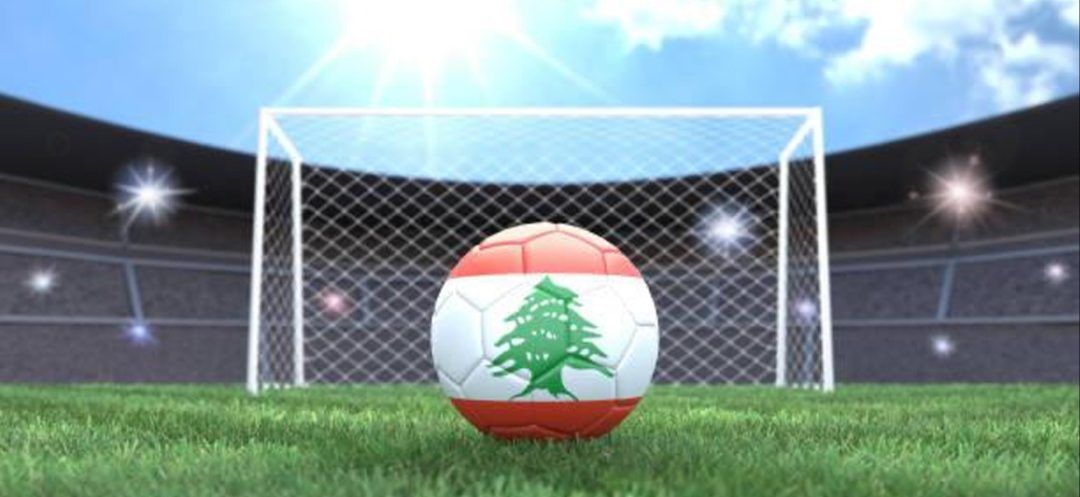
Lebanese sports are once again paralyzed by the escalating war, which has affected various sectors, including sports and administration. A recent decision by the outgoing Minister of Youth and Sports, Dr. Georges Kallas, urged federations, clubs, and associations to postpone their elections due to the current situation.
Lebanese sports have faced periods of stagnation before, notably during the early years of the 1975 war, which persisted until September 2024.
The deteriorating security situation has undoubtedly impacted all sports, particularly football. With the 2024-2025 season underway, football activities have been suspended, prompting a meeting with first-division club presidents and general secretaries scheduled for 1 p.m. on Monday, October 7.
Football has been one of the most affected sports, with many stadiums and sports facilities being used to shelter displaced people from the South, Bekaa and southern suburbs, including the players and their families–a moving sight for the children of the country.
All attention is now focused on the federation’s headquarters, where a difficult decision regarding the 2024-2025 season looms. Many players have been displaced or left the country altogether, and foreign players have returned home. Clubs have shifted their focus to humanitarian efforts, prioritizing the welfare of the displaced over sports.
A reliable source highlights the financial strain on clubs, saying, “The clubs have contracts with technical and administrative staff, and players worth hundreds of thousands, if not millions, of dollars. These contracts were signed before the outbreak of the war, but the season came to a halt. Now, clubs are reviewing their finances and facing serious financial problems. Many players have been scattered, and this will have severe consequences, as hundreds of families depend on football for their livelihood.” The source added, “Communication between clubs and players is almost nonexistent, as most players have left their homes and are displaced within Lebanon. Even well-funded clubs are now struggling with the war’s aftermath.”
The source further questioned, “Can the season be organized under these circumstances? Will the season be canceled, or will it be delayed for several months if the war ends? Are clubs capable of overcoming these challenges and regrouping? What if a ceasefire is delayed?”
“Next Monday's meeting is very important and the participants must issue a joint, unified statement that will be a 'roadmap' for the future, in the midst of this dark situation Lebanon and the region are experiencing. Stadiums are full of displaced people and players are being moved around Lebanon and abroad, and clubs, tied to coaches and players by expensive contracts, are short of cash.”
We hope for the end of this dark chapter in Lebanon’s history and the resumption of activity across all sectors, including sports, which has been severely impacted. The decisions made at Monday’s meeting must rise to the occasion, given the critical times we face.
Lebanese sports have faced periods of stagnation before, notably during the early years of the 1975 war, which persisted until September 2024.
The deteriorating security situation has undoubtedly impacted all sports, particularly football. With the 2024-2025 season underway, football activities have been suspended, prompting a meeting with first-division club presidents and general secretaries scheduled for 1 p.m. on Monday, October 7.
Football has been one of the most affected sports, with many stadiums and sports facilities being used to shelter displaced people from the South, Bekaa and southern suburbs, including the players and their families–a moving sight for the children of the country.
All attention is now focused on the federation’s headquarters, where a difficult decision regarding the 2024-2025 season looms. Many players have been displaced or left the country altogether, and foreign players have returned home. Clubs have shifted their focus to humanitarian efforts, prioritizing the welfare of the displaced over sports.
A reliable source highlights the financial strain on clubs, saying, “The clubs have contracts with technical and administrative staff, and players worth hundreds of thousands, if not millions, of dollars. These contracts were signed before the outbreak of the war, but the season came to a halt. Now, clubs are reviewing their finances and facing serious financial problems. Many players have been scattered, and this will have severe consequences, as hundreds of families depend on football for their livelihood.” The source added, “Communication between clubs and players is almost nonexistent, as most players have left their homes and are displaced within Lebanon. Even well-funded clubs are now struggling with the war’s aftermath.”
The source further questioned, “Can the season be organized under these circumstances? Will the season be canceled, or will it be delayed for several months if the war ends? Are clubs capable of overcoming these challenges and regrouping? What if a ceasefire is delayed?”
“Next Monday's meeting is very important and the participants must issue a joint, unified statement that will be a 'roadmap' for the future, in the midst of this dark situation Lebanon and the region are experiencing. Stadiums are full of displaced people and players are being moved around Lebanon and abroad, and clubs, tied to coaches and players by expensive contracts, are short of cash.”
We hope for the end of this dark chapter in Lebanon’s history and the resumption of activity across all sectors, including sports, which has been severely impacted. The decisions made at Monday’s meeting must rise to the occasion, given the critical times we face.
Read more




Comments